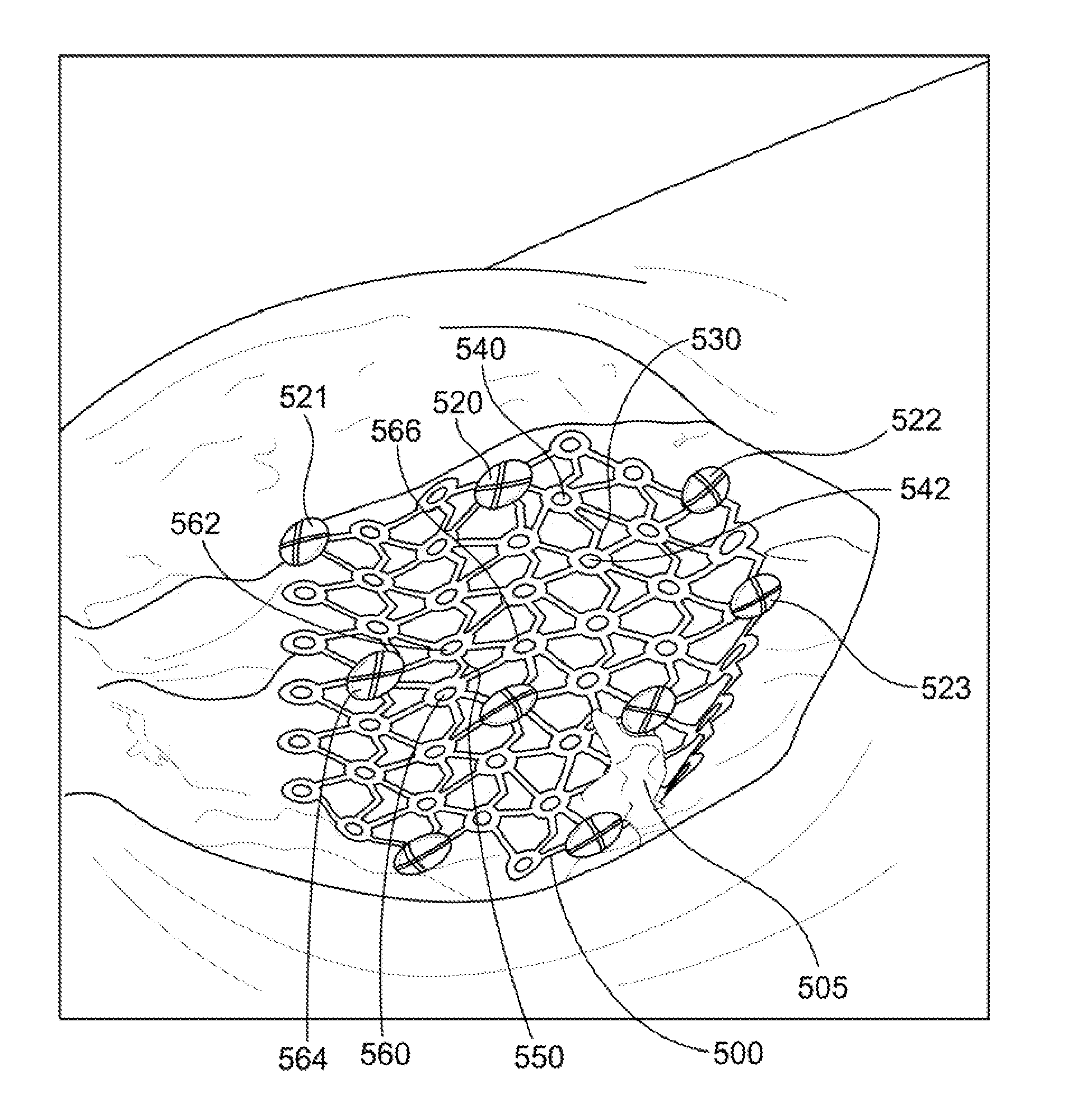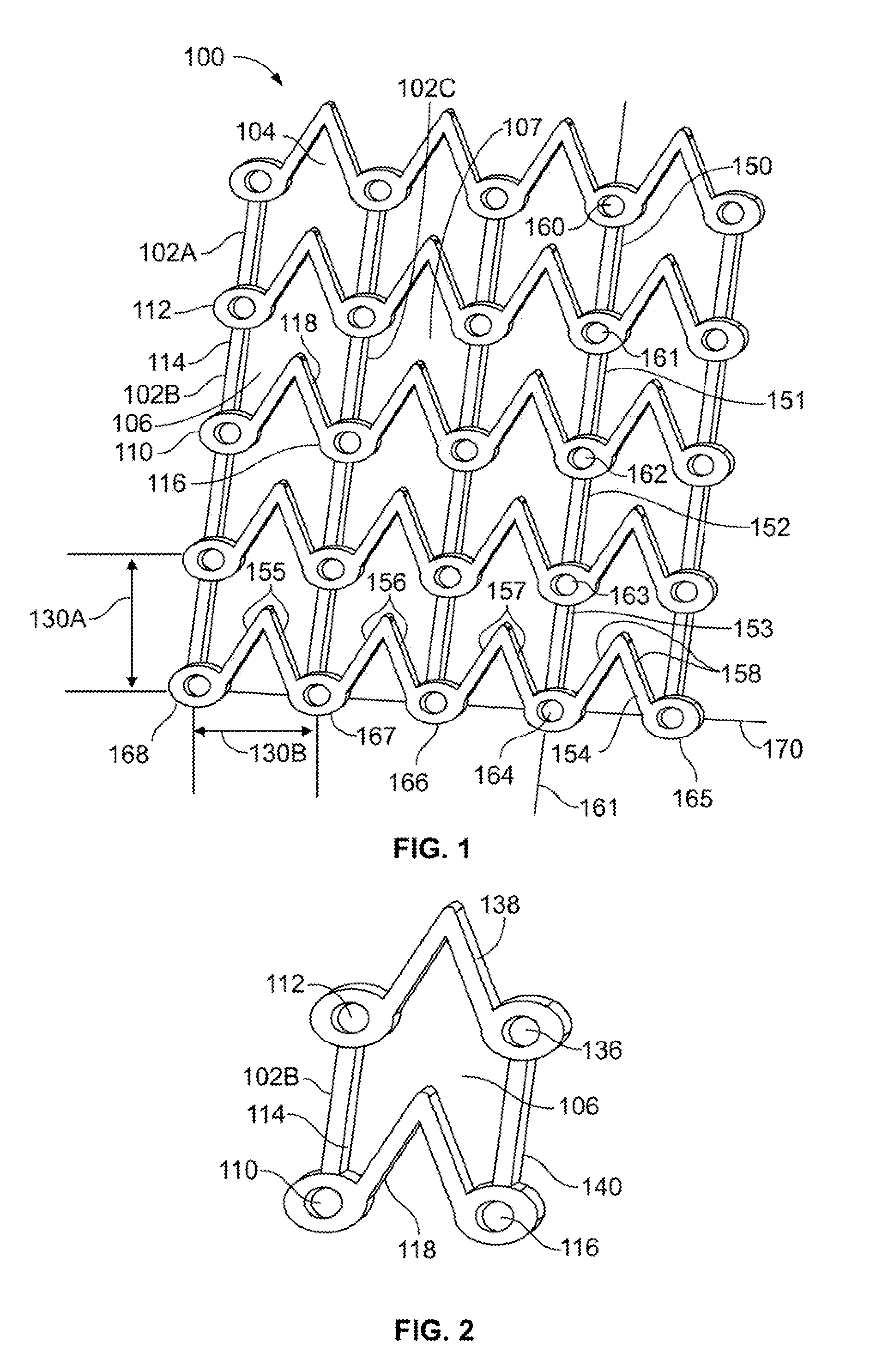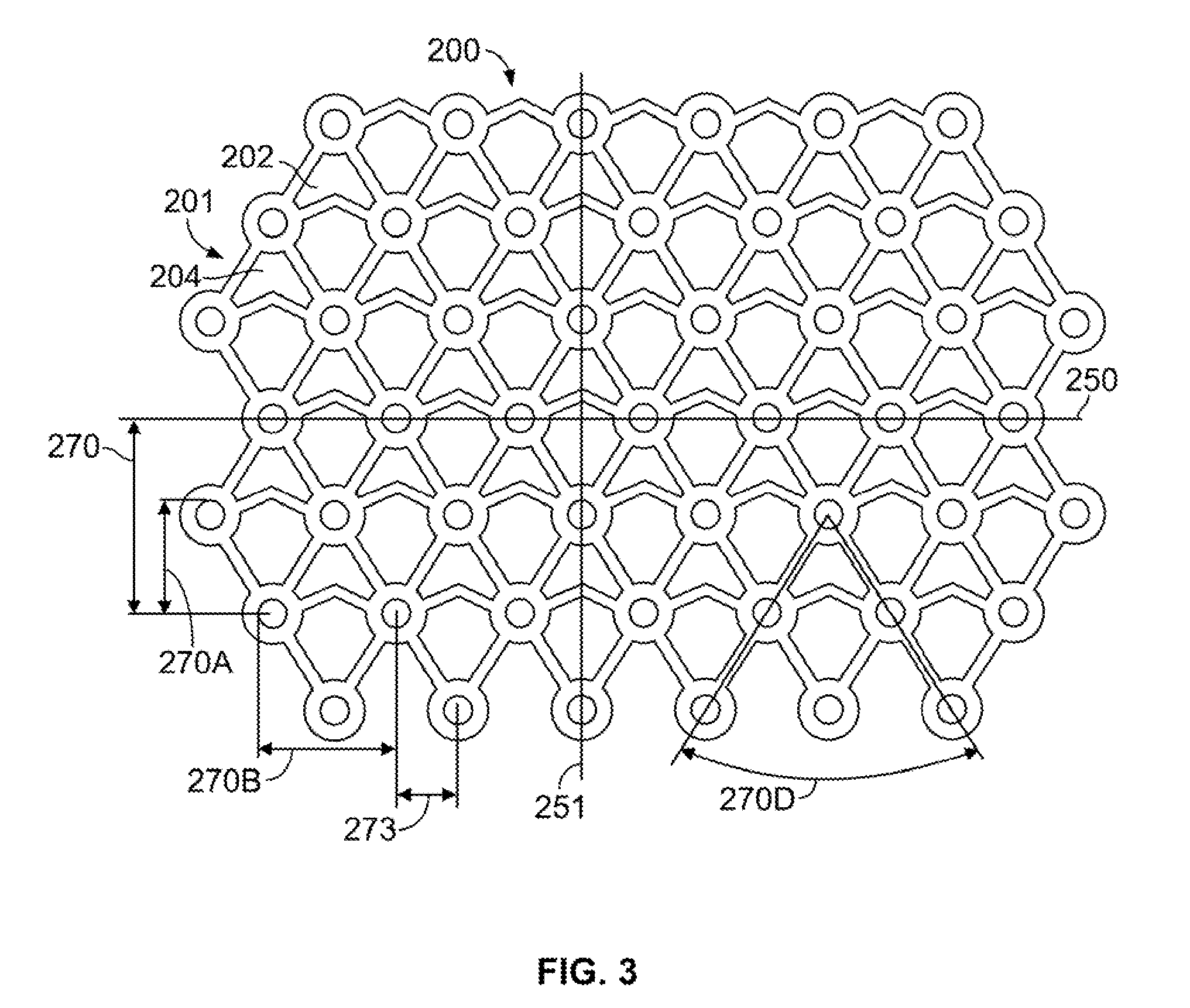Low-profile, high tension mesh plate for subcutaneous fracture fixation
a high-tension, low-profile technology, applied in the direction of bone plates, internal osteosynthesis, osteosynthesis devices, etc., can solve the problems of reducing affecting so as to maximize the function of the knee extensor mechanism, and reduce the need for second surgery
- Summary
- Abstract
- Description
- Claims
- Application Information
AI Technical Summary
Benefits of technology
Problems solved by technology
Method used
Image
Examples
Embodiment Construction
[0016]This description is not to be taken in a limiting sense, but is made merely for the purpose of illustrating the general principles of the invention. For example, one of the preferred embodiments described in detail below concerns the repair of a fractured patella. However, the scope of the invention is defined by the appended claims and, unless so claimed, the device is not limited to a particular surgical application.
[0017]One embodiment provides an apparatus and device for patella fractures. Patella fractures account for 1% of all fractures in adults, with the highest incidence in men between the ages of 20 and 50 years. Most fractures occur from direct force applied to the distal femur with the knee in flexion with common mechanisms being falls and motor vehicle collisions. Operative treatment is indicated in cases of open fracture, severe intraarticular comminution, disruption of the extensor mechanism, and articular displacement of greater than 2-3 mm. Many methods of pat...
PUM
 Login to View More
Login to View More Abstract
Description
Claims
Application Information
 Login to View More
Login to View More - R&D
- Intellectual Property
- Life Sciences
- Materials
- Tech Scout
- Unparalleled Data Quality
- Higher Quality Content
- 60% Fewer Hallucinations
Browse by: Latest US Patents, China's latest patents, Technical Efficacy Thesaurus, Application Domain, Technology Topic, Popular Technical Reports.
© 2025 PatSnap. All rights reserved.Legal|Privacy policy|Modern Slavery Act Transparency Statement|Sitemap|About US| Contact US: help@patsnap.com



